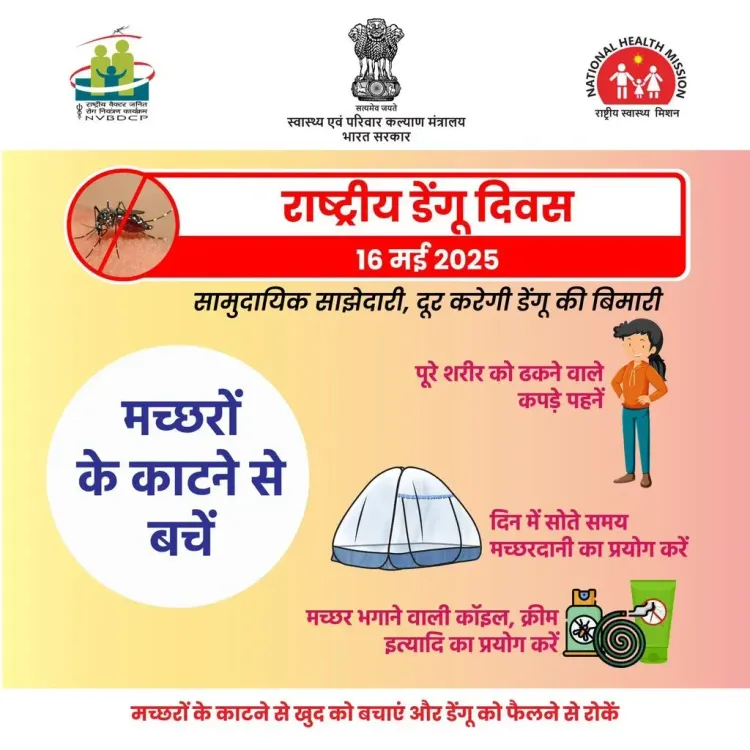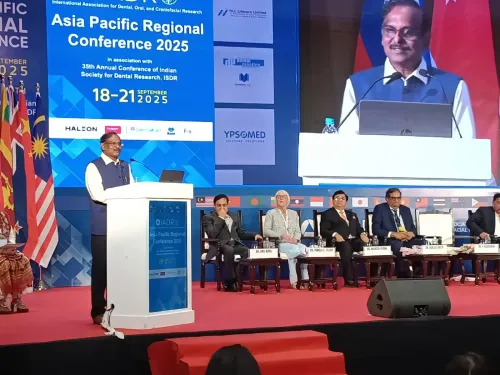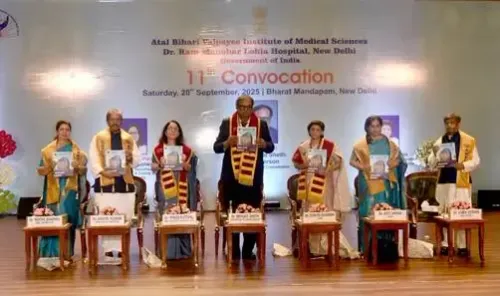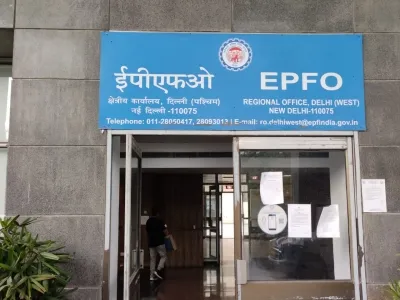How Can We Adopt Cleanliness and Combat Mosquito Breeding to Curb Dengue?

Synopsis
Key Takeaways
- Maintain cleanliness to prevent mosquito breeding.
- Regularly check for stagnant water.
- Educate communities about dengue symptoms.
- Early diagnosis is crucial for effective treatment.
- Community involvement can significantly reduce dengue spread.
New Delhi, May 16 (NationPress) Embracing hygiene, identifying mosquito breeding locations, and promoting awareness are essential strategies to combat the spread of dengue, stated Union Health Minister JP Nadda on the occasion of National Dengue Day this Friday.
To elevate awareness about dengue, the Health Ministry established May 16 as 'National Dengue Day' in 2010. The theme for this year is “Check, Clean, Cover: Steps to Defeat Dengue”.
“This theme highlights the necessity of consistently monitoring mosquito breeding areas, maintaining cleanliness in our surroundings, and securely covering water containers to avert the surge of dengue,” Nadda expressed in a post on the social media platform X.
Labeling dengue as a “significant public health concern”, he called for active community involvement to “raise awareness and educate individuals about prevention and early detection.”
“Through the active engagement of communities, healthcare workers, and local authorities, we can drastically diminish the transmission of dengue and safeguard public health,” the Union Minister asserted.
According to data from the National Centre for Vector-Borne Disease Control (NCVBDC) under the Ministry of Health and Family Welfare (MoHFW), dengue infections in India have surged from 28,066 in 2010 to over 289,000 in 2023.
As of March 2025, India has already recorded more than 16,000 cases, indicating an alarming early trend for the year. This substantial and ongoing increase underscores the urgent need to fortify our public health infrastructure and response mechanisms.
“We must all pledge that by embracing cleanliness and enhancing public knowledge, we will shield our families and communities from a serious illness like dengue. Prevention is the key to protection against dengue. A Clean India leads to a Healthy India – this is the basis for a dengue-free nation!” stated Minister of State for Health and Family Welfare Anupriya Patel on X.
Ayush Minister Prataprao Jadhav also urged individuals to “maintain cleanliness, prevent water accumulation, and wear long-sleeved clothing.”
Dengue is transmitted by a virus carried by Aedes mosquitoes, which flourish in warm, humid environments.
Escalating climate changes are creating more breeding grounds for dengue within India. Regions like Jammu and Kashmir and Himachal Pradesh have begun experiencing frequent outbreaks, suggesting that the traditional “dengue belt” is expanding.
A recent study published in The Lancet cautioned that climate-sensitive diseases such as dengue are expected to rise significantly, especially in South Asia, if immediate action is not taken.
Dr. Praveen Gupta, a prominent neurologist at a hospital in Gurugram, emphasized that the nationwide proliferation of dengue, exacerbated by climate change, poses not only fever but severe neurological risks, including encephalitis, seizures, and Guillain-Barre syndrome.
“As cases rise throughout the year, timely diagnosis and awareness are vital. Beyond vector control and vaccines, protecting brain health requires immediate, coordinated, and informed public health initiatives,” Gupta commented.
Meanwhile, the Ministry of Health has recommended strategies such as sleeping under a mosquito net and using mesh on windows and doors to prevent mosquito bites and dengue.
“If you exhibit symptoms of dengue, do not be negligent; it can be deadly. Get a blood test promptly and consult a healthcare provider. Rest during the fever and stay hydrated. Dengue testing is available free of charge in designated government hospitals,” the Ministry advised on X.









